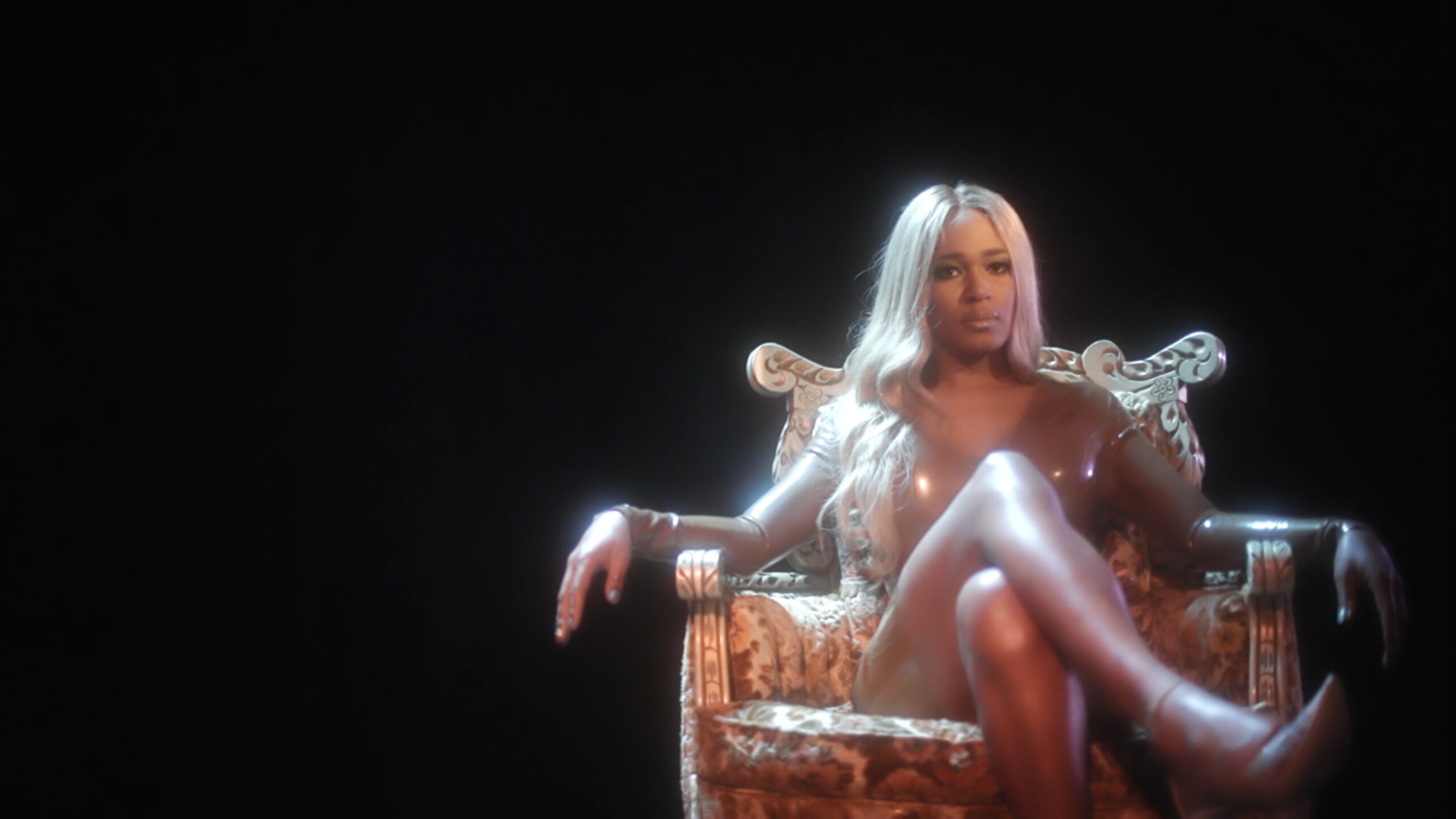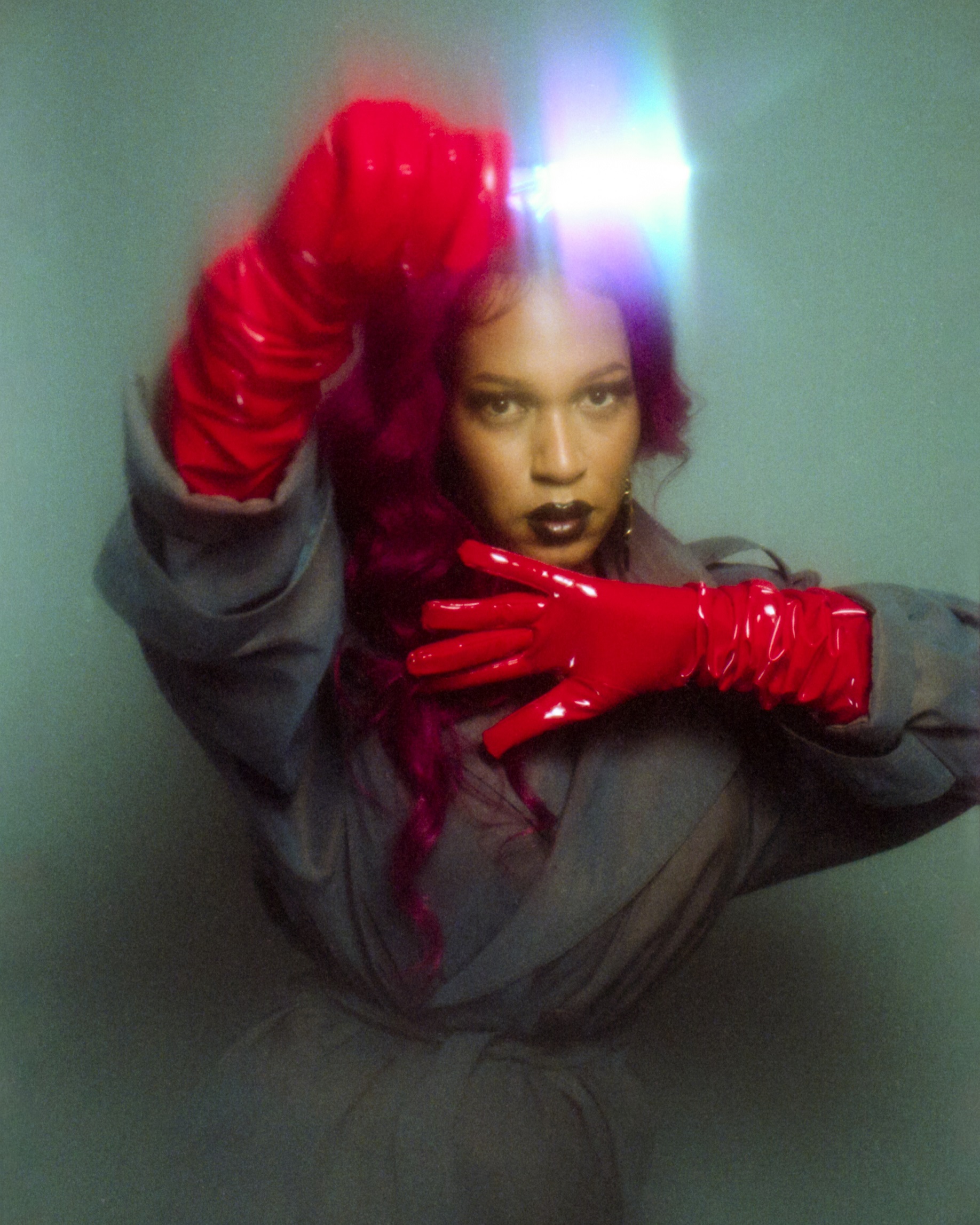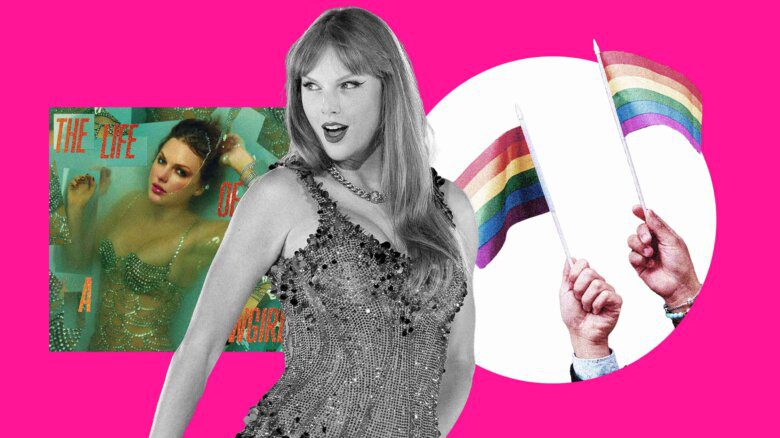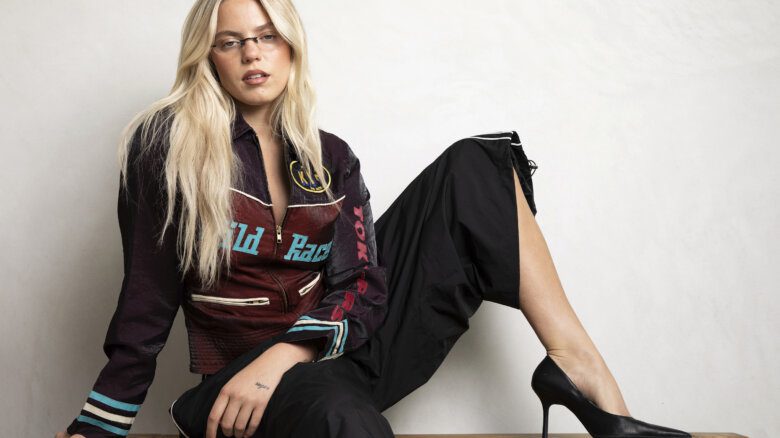Elle Barbara has mastered the art of DIY glamour. Since her origins in the Montreal music scene at the turn of the 2010s, the multidisciplinary artist has dazzled with whatever is at her disposal. Whether filming videos on a shoestring budget or releasing her music on small local labels, she has maintained punk principles while looking and sounding like a subterranean pop star.
“Coming up in the scene, I didn’t have any other ways in,” Barbara tells Xtra over Zoom. “I kind of had to carve out my lane. I love the mainstream world in many ways, but I do and say whatever the fuck I want to. If you consider that punk, so be it. I’ve always just improvised and done whatever feels the most authentic to me.”
This approach continues on Barbara’s latest release, a self-produced two-song single. It is the first recording credited to her band, Elle Barbara’s Black Space, an Afro-diasporic collective of musicians that includes Mitch Davis and Markus Floats. The group pays tribute to the percussion-driven musical genre of zouk with “Délice Créole,” while “Peach Purée (de Pêches)” smoothly blends Brazilian tropicália, 1960s French yé-yé and Japanese city pop with a carefree melody reminiscent of “The Girl From Ipanema.”
In one of two videos for “Peach Purée (de Pêches),” the musician is surrounded by members of the House of Barbara, a group of young Black artists who compete together in local vogue balls. Using shiny gold cans of peaches adorned with Barbara’s face as props, the video is an infectious collision of high fashion and lo-fi filmmaking techniques.
Alongside her artistic efforts, Barbara has stepped into a secondary role as a community organizer dedicated to the cause of mutual aid. With many members of the House of Barbara adopting the musician’s last name, she is viewed as a maternal figure in Montreal’s LGBTQ2S+ community, drawing on decades of experience while offering sage advice to her chosen family.
“Given my role in ballroom, a lot of people started referring to me as a mother of the scene,” Barbara says. “It was only a matter of time before I started my own house.”
As a longtime champion of queer, Black intersectionality in the Montreal art world, she explains how the group’s younger members view her as a mentor or leader. “Almost all of my children are in their late teens or early 20s,” Barbara says. “In the case of transfeminine people, they can imagine themselves being like me when they’re a bit older.”

Elle Barbara is much more than a musician. Credit: Elle Barbara, Vjosana Shkurti and Alexander Storm
In recent years, members of the House of Barbara have been considered innovators at the forefront of Montreal’s latest ballroom wave. Barbara has worked as the organizer of many local events, but is happy when other organizations take the lead. The movement certainly has a long history. But the musician is also quick to mention how someone attempting to teach her about Montreal’s history gave her a flyer from 1992; 29 years ago, someone was already promoting a vogue ball in the city’s gay village.
“That goes to show the importance of documentation,” Barbara says, “especially as it pertains to marginalized communities that don’t have resources, or aren’t deemed important enough to be reported upon by an external gaze. As far as recent history is concerned, we don’t know about much else that has been done in the last 15 to 20 years.”
Beyond mentorship, Barbara offers monetary support to her community through fundraisers organized by Taking What We Need (TWWN), a grassroots project granting discretionary funds to low-income trans women. Alongside co-organizers Estelle Davis and Lenore Claire, TWWN began with a Titanic-themed house party intended to raise funds for an at-home laser hair removal machine that could be shared communally. After raising more than $1,200, the trio decided to skip the purchase and donate the funds directly to people in need.
“The money we raise can be contributed to people’s transitions, or just their general well-being,” Barbara says. “A few years ago, Godspeed You! Black Emperor gave away money from a series of shows, so they picked Taking What We Need as one of the organizations they decided to support. Last year, in light of George Floyd and several other things, we decided to prioritize Black and Indigenous applicants.”
Over the years, Barbara’s star-studded list of collaborators has included Stereolab vocalist Laetitia Sadier, home recording hero R. Stevie Moore and fellow Canadian electronic pop artist Jessy Lanza. “Jessy messaged me and told me I was one of her favourite singers,” Barbara says, laughing. “That’s happened a few times now when someone more famous than me has slid into my DMs to express their admiration. It’s always fun to experience!”
“My intention is not to do hardcore pornography, but veer towards vintage pin-up style erotica.”
The physical versions of her upcoming release—available as an old school 12″ maxi-single from Montreal label Celluloid Lunch and a cassette from West Virginia’s Crash Symbols—will also include a series of remixes. Lanza returns to give Barbara a dance floor makeover, alongside contributions from d’Eon and G L OW Z I. As yet another way to showcase her glamorous beauty, Barbara plans to combine the musical project with her introduction to the world’s sexiest subscription service.
“I’m going to film videos for each of the remixes, which I intend to make available on OnlyFans,” she says. “That’s right. I’m hopping on the bandwagon! Of course, my intention is not to do hardcore pornography, but veer towards vintage pin-up style erotica. It all depends how comfortable I feel on set, but I’m definitely going to show some things.”
Whether collaborating with fellow artists or fundraising for a good cause, Barbara’s primary goal is lifting up those around her. Even in the rivalrous world of vogue balls, she aims to create a safe space for artistic expression—the kind of space she had to carve out on her own.
“I think of ballroom not just in terms of its competitive nature, but how it brings people together,” Barbara says. “I want to push whoever joins my house into whatever direction they want to go.”


 Why you can trust Xtra
Why you can trust Xtra


